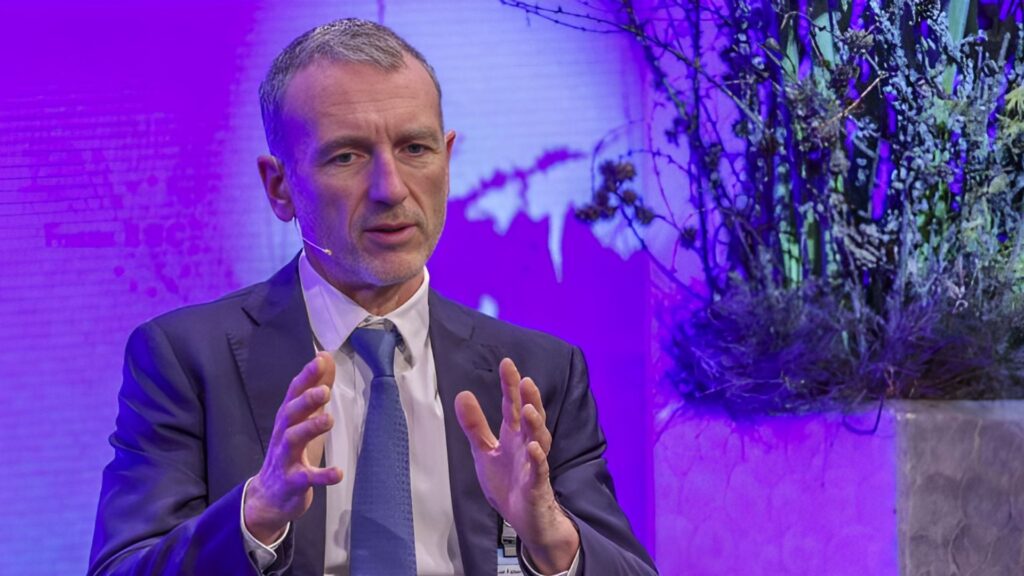Over Half of Global Economy Moves Toward Adoption of ISSB Sustainability Standards

The IFRS Foundation releases Jurisdictional Guide at IOSCO Annual Meeting to support regulators
Jurisdictions representing over half the global economy by gross domestic product (GDP) have announced steps to use the International Sustainability Standards Board’s (ISSB) Standards or to fully align their sustainability disclosure standards with those of the ISSB.
A growing number of jurisdictions are moving ahead with or considering measures to ensure global comparability in companies’ climate and other sustainability-related disclosures by relying on the global baseline established by the ISSB Standards.
More than 20 jurisdictions have already decided to use or are taking steps to introduce ISSB Standards in their legal or regulatory frameworks. Together, these jurisdictions account for:
- nearly 55% of global GDP;
- more than 40% of global market capitalisation; and
- more than half of global greenhouse gas emissions.
Many jurisdictions are seeking full alignment with or adoption of the ISSB Standards: the European Union was first; the Corporate Sustainability Reporting Directive established in June 2022 that the European Sustainability Reporting Standards would incorporate ISSB Standards to the greatest extent possible. That decision paved the way to a high level of alignment on climate and the interoperability guidance the IFRS Foundation and EFRAG recently jointly issued; the latest is China, where yesterday the Ministry of Finance of the People’s Republic of China issued the Exposure Draft of Chinese Sustainability Disclosure Standards for Business Enterprises—Basic Standard and Explanation of the Drafting. The draft formulates the unified China Sustainability Disclosure Standards based on ISSB Standards, drawing on the beneficial experiences of ISSB Standards, aligning with China’s context and showcasing Chinese characteristics.
Together, the 20 plus jurisdictions that have taken steps to adopt or otherwise use ISSB Standards account for around 75% of global market capitalisation excluding the United States. In the USA, when the Securities and Exchange Commission (SEC) recently issued a release in respect of their climate-disclosure rule[1] they acknowledged similarities with the ISSB Standards. In acknowledging the role of the ISSB Standards and the range of jurisdictions currently considering requirements using the Standards, the US SEC noted that the Standards are not yet integrated in those jurisdictional rules, and accordingly, declined at this time to recognise the ISSB Standards for use as an alternative to the SEC’s climate disclosure rules.
The progress towards the introduction of sustainability disclosure requirements globally reflects a significant response since IOSCO announced its endorsement of ISSB Standards in July 2023. IOSCO called on its members, who regulate companies in more than 95% of the world’s financial markets, to consider ways in which their jurisdictions might adopt, apply or otherwise be informed by ISSB Standards within the context of their jurisdictional arrangements, in a way that promotes companies’ consistent and comparable climate-related and other sustainability-related disclosures for investors.
Supporting jurisdictions
The IFRS Foundation has today released a guide to help jurisdictions design and plan their journey to the adoption or other use of ISSB Standards.
The publication of the Inaugural Jurisdictional Guide for the adoption or other use of ISSB Standards (Guide) at the IOSCO Annual Meeting in Athens comes at a time of increasing momentum towards the establishment of the global baseline of sustainability disclosures for capital markets.
The Guide aims to show market participants how jurisdictions are progressing towards delivering globally consistent and comparable sustainability-related information. It acknowledges various ways in which jurisdictions may use the ISSB Standards, as set out in the IOSCO endorsement decision. The Guide also describes various jurisdictional approaches to the adoption or other use of ISSB Standards, including full adoption, partial adoption and permission to use.
The Foundation has also outlined its Regulatory Implementation Programme, summarising the tools, educational materials and capacity building the IFRS Foundation intends to provide in collaboration with its partners to support the growing number of jurisdictions seeking to make policy decisions and design and execute their roadmaps for the adoption or other use of ISSB Standards.
The programme will serve as a framework for close collaboration between the IFRS Foundation and the Growth and Emerging Markets Committee of IOSCO, which comprises more than 120 regulators across the world. These efforts will be further supported through partnerships with other international bodies, multilateral development banks and private sector partners to advance capacity building.
African Development Bank and IFRS Foundation partnership for capacity building
Finally, today marked an important step in capacity building efforts: at its Annual Meeting in Nairobi, Kenya, the African Development Bank (AfDB) signed an agreement with the IFRS Foundation to collaborate to advance sustainability-related disclosure practices in Africa through the provision of capacity building and technical assistance. The agreement reflects the IFRS Foundation’s priority focus on supporting the implementation of ISSB Standards.
IOSCO Chair Jean-Paul Servais said:
Today marks an important milestone in IOSCO’s objective to establish a global framework for comparable reliable sustainability disclosures for the capital markets. I am encouraged by the fact that not even a year after our endorsement and call to action, so many jurisdictions are seeking to adopt or be informed by the ISSB Standards. The ISSB’s Inaugural Jurisdictional Guide released today will be very useful to further support jurisdictional journeys towards adoption or use of the Standards and to bring much needed transparency to market participants on global progress.
IOSCO Growth and Emerging Markets Committee Chair Mohamed Farid Saleh said:
I am delighted to see a number of emerging markets taking clear steps towards adoption or other use of the ISSB Standards and I urge them to complete the efforts to avail the standards in different languages for speed of adoption. I also commend the IFRS Foundation’s engagement with the IOSCO Growth and Emerging Markets Committee and the capacity building program developed jointly with IOSCO to assist securities regulators in this journey.
IFRS Foundation Trustees Chair Erkki Liikanen said:
Regulators and standard-setters have complimentary roles in supporting capital markets’ efficiency. We look forward to building on our close working relationship with IOSCO to support regulators on their journey to adopt or otherwise use ISSB Standards. The introduction of the Standards into regulatory frameworks will—for the first time—enable capital markets to assess and price climate and other sustainability-related risks and opportunities appropriately.
Furthermore, we welcome the recent announcement from the Chinese Ministry of Finance regarding their strategy for unified China Sustainability Disclosure Standards System based on ISSB Standards. I am grateful to the continued support of the Ministry of Finance to the establishment of ISSB and the global baseline since our creation.
Related Article: ISSB Releases Digital Sustainability Taxonomy to Enhance Analysis of Financial Disclosures
ISSB Chair Emmanuel Faber said:
From major economies to emerging markets, jurisdictions around the world such as Brazil, Costa Rica, Japan, Nigeria and the UK are recognising the value of the ISSB Standards. Supporting completion of their regulatory processes, as well as the engagement with other jurisdictions around the world, is our priority in the near future in creating the global baseline of proportionate, high-quality sustainability-related financial disclosures.









